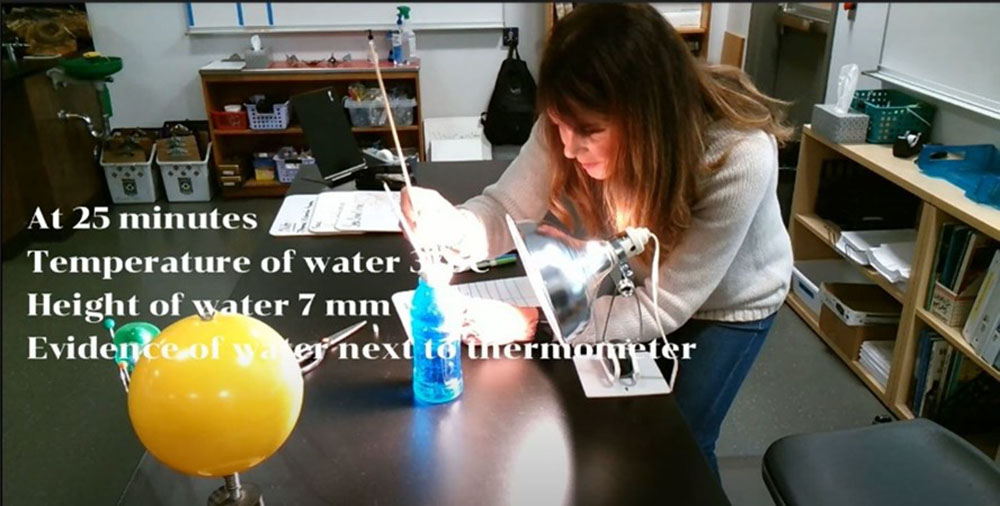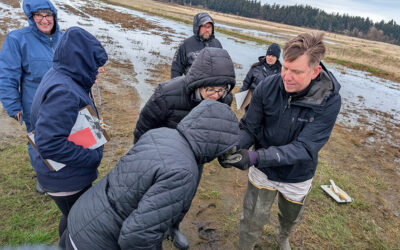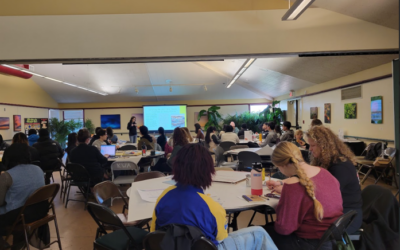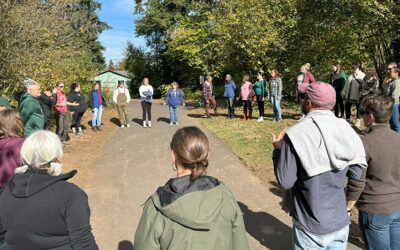During the week of November 2nd 2020, 23 teachers from nine districts across the Puget Sound region attended a three-day online workshop, Solutions Oriented Learning Storylines: Coastal Hazards, with Pacific Education Institute’s FieldSTEM Coordinators Tressa Arbow, Molly Griffiths and Hattie Osborne along with local community partners.
To begin the workshop series, Tressa acknowledged the land that she resides on and gave time for the participants to research the lands they currently occupy. Sonni Tadlock, a descendant of the Colville tribe, presented her research and work with clam gardens, which are a traditional food source and cultural resource for some coastal Indigenous peoples. Clam garden restoration efforts are threatened by sea level rise and ocean acidification. An asynchronous activity connected the session’s concepts by having participants research their local tribal nations and identify actionable steps to incorporate tribal history and perspective in their classrooms.
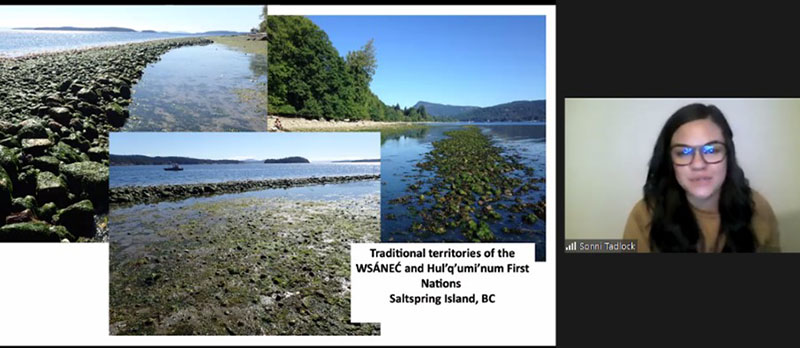
Sonni Tadlock presenting about traditional clam gardens.
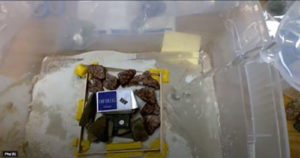
Lonny S. completed the flood barrier activity from the 3rd grade storyline on coastal flooding.
The second session introduced participants to Dr. Ian Miller, a Coastal Hazards Specialist from Washington Sea Grant who discussed the impacts of coastal hazards along the coast and Puget Sound. Dr. Miller gave an overview of adaptation and mitigation efforts for sea level rise, coastal erosion and flooding. After hearing from Dr. Miller, participants shared their tribal nation research from their asynchronous assignment in small groups. Multiple participants commented that learning about local Indigenous people was a new opportunity for them and they will carry this into their classrooms.
Finally, educators learned more about teaching science by discussing three-dimensional formative assessment strategies and being introduced to PEI’s Solutions Oriented Learning Storylines: Coastal Hazards to teach climate science in developmentally appropriate, locally relevant ways. After the workshop, a participant shared this sentiment, “I loved the background knowledge from the speakers! So often PDs for teachers are focused on just the teaching part, but not the content. I loved learning about the content from the speakers, which I will now feel more confident bringing enthusiastically into my classroom.” PEI will be facilitating another Coastal Hazards workshop in January 2021.

